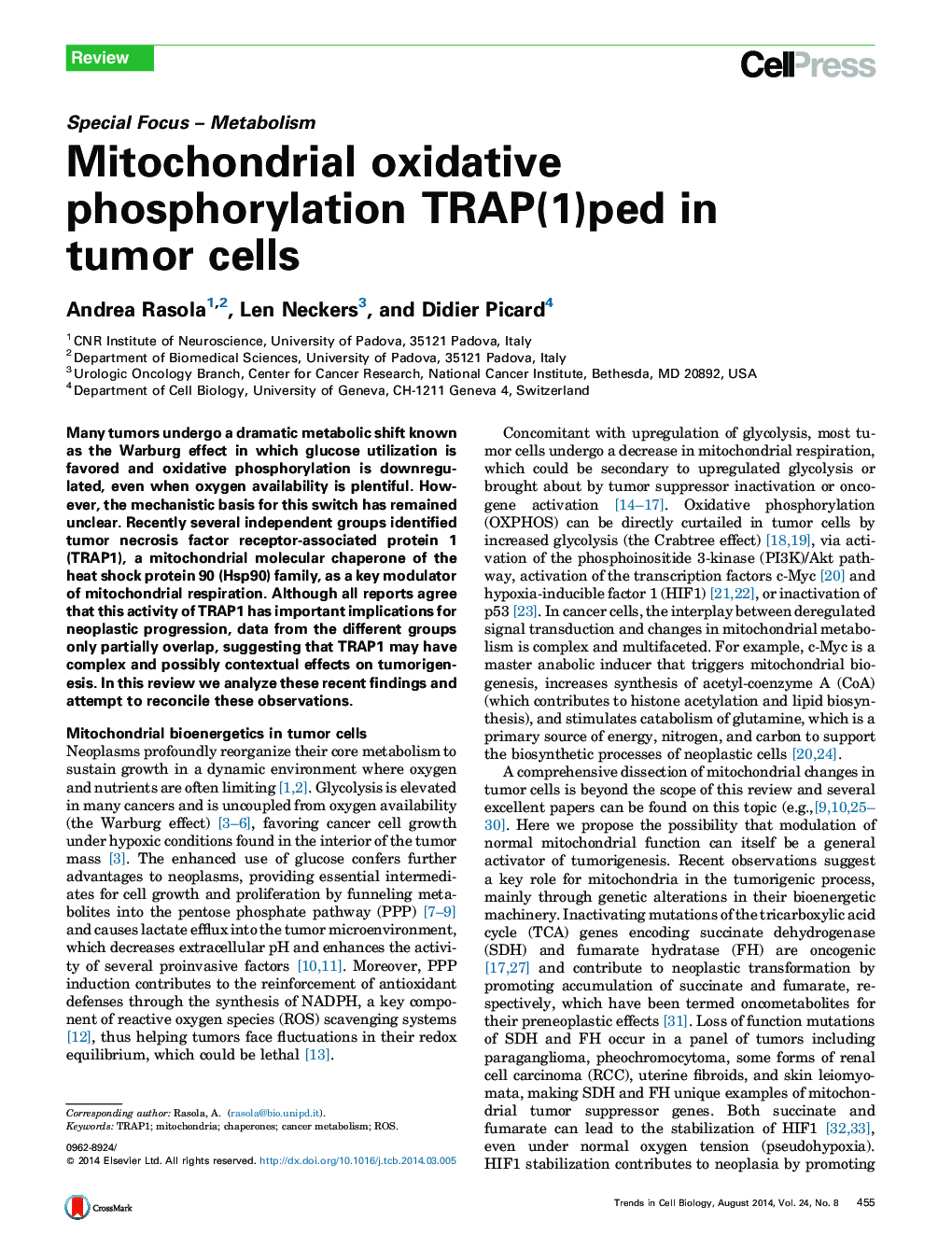| Article ID | Journal | Published Year | Pages | File Type |
|---|---|---|---|---|
| 2204520 | Trends in Cell Biology | 2014 | 9 Pages |
•Tumor cells rewire their metabolism by inducing glycolysis and inhibiting respiration.•The mitochondrial chaperone TRAP1 is an inhibitor of respiration involved in tumorigenesis.•We discuss how the metabolic activity of TRAP1 may regulate the growth of neoplasms.
Many tumors undergo a dramatic metabolic shift known as the Warburg effect in which glucose utilization is favored and oxidative phosphorylation is downregulated, even when oxygen availability is plentiful. However, the mechanistic basis for this switch has remained unclear. Recently several independent groups identified tumor necrosis factor receptor-associated protein 1 (TRAP1), a mitochondrial molecular chaperone of the heat shock protein 90 (Hsp90) family, as a key modulator of mitochondrial respiration. Although all reports agree that this activity of TRAP1 has important implications for neoplastic progression, data from the different groups only partially overlap, suggesting that TRAP1 may have complex and possibly contextual effects on tumorigenesis. In this review we analyze these recent findings and attempt to reconcile these observations.
